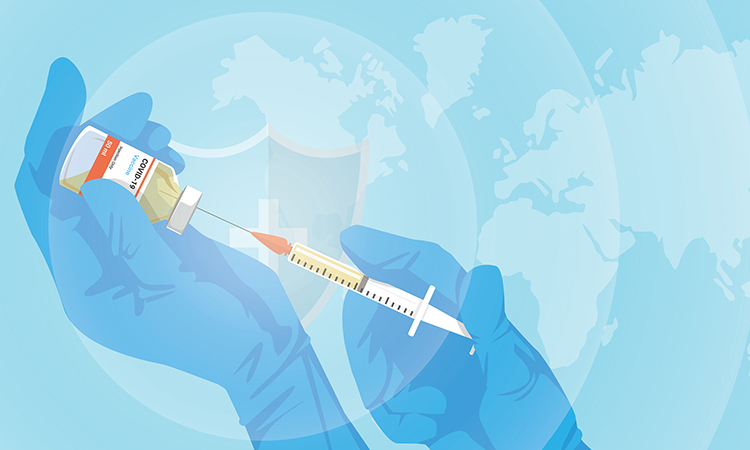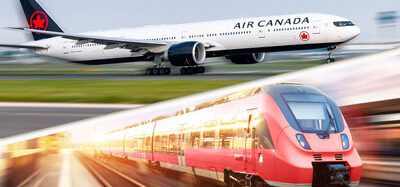IATA highlights importance of lifting travel restrictions for vaccinated travellers
Posted: 20 May 2021 | International Airport Review | No comments yet
As countries across the globe begin to lift national travel restrictions for vaccinated travellers, IATA has called for the rest of the world to follow suit.


The International Air Transport Association (IATA) has applauded the growing number of countries that are making data and evidence-driven decisions to open their borders to vaccinated travellers. The latest data collected by IATA, including its Timatic service, shows that more than 20 countries have wholly or partially lifted restrictions for vaccinated travellers.
IATA supports unrestricted access to travel for vaccinated travellers. In cases where vaccination is not possible, access to quarantine-free travel should be provided through COVID-19 testing strategies based on widely available, free-of-charge tests.
Germany is among the latest countries to make quarantine alleviations for vaccinated travellers. Vaccinated travellers are no longer subject to quarantine measures (except from certain high-risk countries). Germany has also removed quarantine requirements for travellers with a negative COVID-19 test result (except from certain high-risk countries).
The German government’s decision followed a review of scientific advice from the world-renowned Robert Koch Institute (RKI), which concluded that vaccinated travellers are no longer significant in the spread of the disease and do not pose a major risk to the German population. Specifically, it stated that vaccination reduces the risk of COVID-19 transmission to levels below the risk from a false negative rapid antigen test.
The implementation of this policy aligns Germany with recommendations from both the European Commission (EC) and the European Parliament, based on similar scientific advice from the European Centre for Disease Control and Prevention (ECDC). In its interim guidance on the benefits of full vaccination, ECDC said that “based on the limited evidence available, the likelihood of an infected vaccinated person transmitting the disease is currently assessed to be very low to low.”
Similar conclusions are being reached on the other side of the Atlantic. In the U.S., the Centers for Disease Control and Prevention (CDC) has noted that “with a 90 per cent effective vaccine, pre-travel testing, post-travel testing and seven-day self-quarantine provide minimal additional benefit.”
“A safe opening of borders to international travel is the goal. Scientific evidence and data – such as that presented by RKI, ECDC and the U.S. CDC – should be the basis for the decision-making needed to achieve that. There is increasing scientific evidence that vaccination is not only protecting people but also dramatically reducing the risk of COVID-19 transmission. This is bringing us closer to a world where vaccination and testing enables the freedom to travel without quarantine. Germany and at least 20 other countries have already taken an important step forward in re-opening their borders to vaccinated travellers. These are the best practice examples for others to quickly follow,” said Willie Walsh, IATA’s Director General.
According to the U.S. CDC, alleviations from COVID-19 restrictions are a powerful motivator for vaccination, particularly in communities where vaccine hesitancy is prevalent. This is an additional and important benefit of restriction-free travel for those vaccinated. IATA polling indicates that 81 per cent of international travellers are willing to get vaccinated in order to be able to travel. Moreover, 74 per cent of people in the same poll agreed that those vaccinated should be able to travel by air without restrictions.
The decisions of increasing numbers of countries to accept vaccinated travellers without quarantine measures adds pressure for a digital solution to manage vaccine certificates and COVID-19 test results. Paper-based processes could lead to extremely long processing times at check-in and border control. They also open the door to fraud. Digital vaccine/test certificates, coupled with passenger apps such as the IATA Travel Pass, will be needed to manage travel health credentials efficiently and securely in the restart.
Recent IATA polling shows strong support for a digital solution:
- 89 per cent supported globally standardised COVID-19 test or vaccination certifications
- 84 per cent want an app to manage their travel health credentials.
“A gap is opening up between countries responding to scientific evidence and those exhibiting a lack of preparation or excessive caution in reopening borders. Countries that seize the opportunity offered by the increasing numbers of vaccinated travellers can protect their populations and reap an economic reward,” said Walsh.
Join our free webinar: Transforming Airport Security – Innovation, Impact, and the Passenger Experience
The landscape of airport security is undergoing a profound transformation, driven by evolving threats, technology, and passenger expectations. This webinar focuses on how AtkinsRéalis has been transforming security processes at some of the world’s busiest airports with smarter, more adaptive solutions.
Date: 4 Nov | Time: 14:00 GMT
REGISTER NOW TO SECURE YOUR SPOT
Can’t attend live? No worries – register to receive the recording post-event.
Related topics
COVID-19, Passenger experience and seamless travel, Regulation and Legislation, Safety
Related organisations
Centers for Disease Control and Prevention (CDC), European Centre for Disease Prevention and Control (ECDC), European Commission (EC), European Parliament, International Air Transport Association (IATA), Robert Koch Institute (RKI)


















